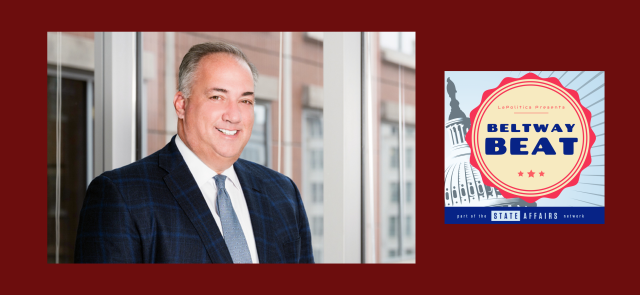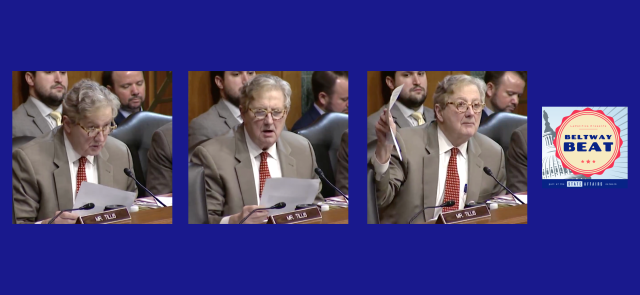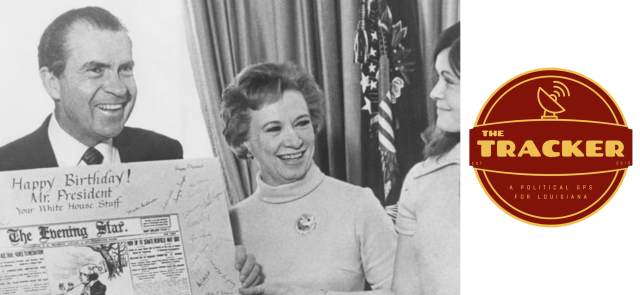Stay ahead of the curve as a political insider with deep policy analysis, daily briefings and policy-shaping tools.
Request a DemoGuest column: SCOTUS reversal of 40-year-old doctrine could have major impact in Louisiana

Ward Cormier, senior director of federal affairs, The Picard Group
While most of the nation is focused on the 2024 elections, there has been a major shift in the way laws and regulations are implemented.
For 40 years, the federal government has operated under the Chevron doctrine, which made it standard practice for courts to give deference to an agency’s interpretation of congressional intent when legally challenged, a practice that has ended due to a recent Supreme Court decision in Loper Enterprises v. Raimondo. This ruling is consequential because it weakens executive authority and will require Congress to be more specific with its intent in drafting future legislation.
The 1984 Supreme Court case Chevron U.S.A. v. NRDC originally established the Chevron doctrine. Proponents of that decision argue that agencies have expertise in their particular areas of jurisdiction making deference to their decisions more practical, while also allowing the administration the flexibility to deal with changing circumstances as they arise. Opponents argue that this deference to agencies leads to overreach by the executive branch, with a need for courts, rather than agencies, to play an active role when Congressional intent is not clear.
The Supreme Court decision in Loper Enterprises v. Raimondo constitutes a major realignment in shifting the burden of regulatory development from the administration to Congress. Congress has often deferred to agencies on enactment and implementation of laws, leading agencies to retain policy and issue experts to finalize the development of laws prior to implementation. There will likely be a move by Congress, especially by committees, to retain more policy experts to ensure that Congressional intent is clearly defined for federal agencies, or at a minimum decipherable by the judicial branch.
While this change will have no impact on laws created by Louisiana’s state government, there are implications for issues and federal agencies that are prevalent to the State’s economy.
In Louisiana, Chevron’s effects have been seen in the EPA’s clean air and water standards, the Army Corps of Engineers’ implementation of coastal restoration projects, and fisheries management in the Gulf. More prominently it has been felt in the governance of offshore drilling, with past administrations issuing regulations based on their own interpretation of Congressional intent to either promote or curb development.
The recent ruling prevents the immediate overturning of regulations enacted prior to the decision, but does allow for some legal actions, especially for executive interpretations that were not previously challenged in court.
The ruling also allows Congress to legislate authority to a federal agency to interpret any ambiguities. This will put pressure on Congress to enact more specifically defined laws to clarify Congressional intent and hopefully avoid lengthy judicial processes which may delay enactment.
As Congress becomes more prescriptive in its legislative drafting, it will be more important than ever for stakeholders to be active on Capitol Hill, engaging with members and staff to ensure they are aware of potential impacts to their interests.
Ward Cormier is senior director of federal affairs with The Picard Group. He is based in Washington, D.C.
Know the most important news affecting Louisiana
Get our free weekly newsletter that covers government, policy and politics that impact your everyday life—in 5 minutes or less.
The federal election is over. What do the results mean for Louisiana?
With Republicans sweeping the presidency, House and Senate, Louisiana’s own Mike Johnson and Steve Scalise will remain speaker of the House and House majority leader, respectively, for the 119th United States Congress. So how does Republican control of Washington impact Louisiana over the next two-to-four years? The answer is twofold. First, let’s start with President-Elect Donald Trump. The state …
Delegation Roundup
—CASSIDY NAMES FINANCE TEAM: U.S. Sen. Bill Cassidy announced this morning the Finance Committee members who will help steer his re-election ahead of the 2026 cycle. The committee includes many of Cassidy’s top donors from the past year, including businessman Boysie Bollinger, former gubernatorial candidate Eddie Rispone and dozens of others. “I thank everyone on …
ANOTHER LATE NIGHT: Dems may push into evening to confirm judges as GOP objects
The U.S. Senate is positioned to confirm at least 243 of President Joe Biden’s Democratic judicial nominees as he prepares to leave office, including 217 that had received official nods during this four-year term as of Tuesday night. Another 26 judicial nominees are pending approval, and Senate Majority Leader Chuck Schumer told Republicans and Democrats …
Socially Yours (11.19.24)
HAPPY BIRTHDAY! — Tuesday, Nov. 19: Taunton Melville and Randy Hayden — Wednesday, Nov. 20: Former Rep. Scott McKnight, former Lt. Gov. Scott Angelle, Connie Bernard, Matt Hutsonand the late Smiley Anders — Thursday, Nov. 21: U.S. Sen. John Kennedy, Sen. Blake Miguez and Alisha Duhon — Friday, Nov. 22: Congressman-elect Cleo Fields, Sen. Gary Carter, former Rep. Robert Billiot, Sam Irwin, Sailor Jackson and Chuck Hustmyre — Saturday, Nov. 23: Former U.S. Sen. Mary …



